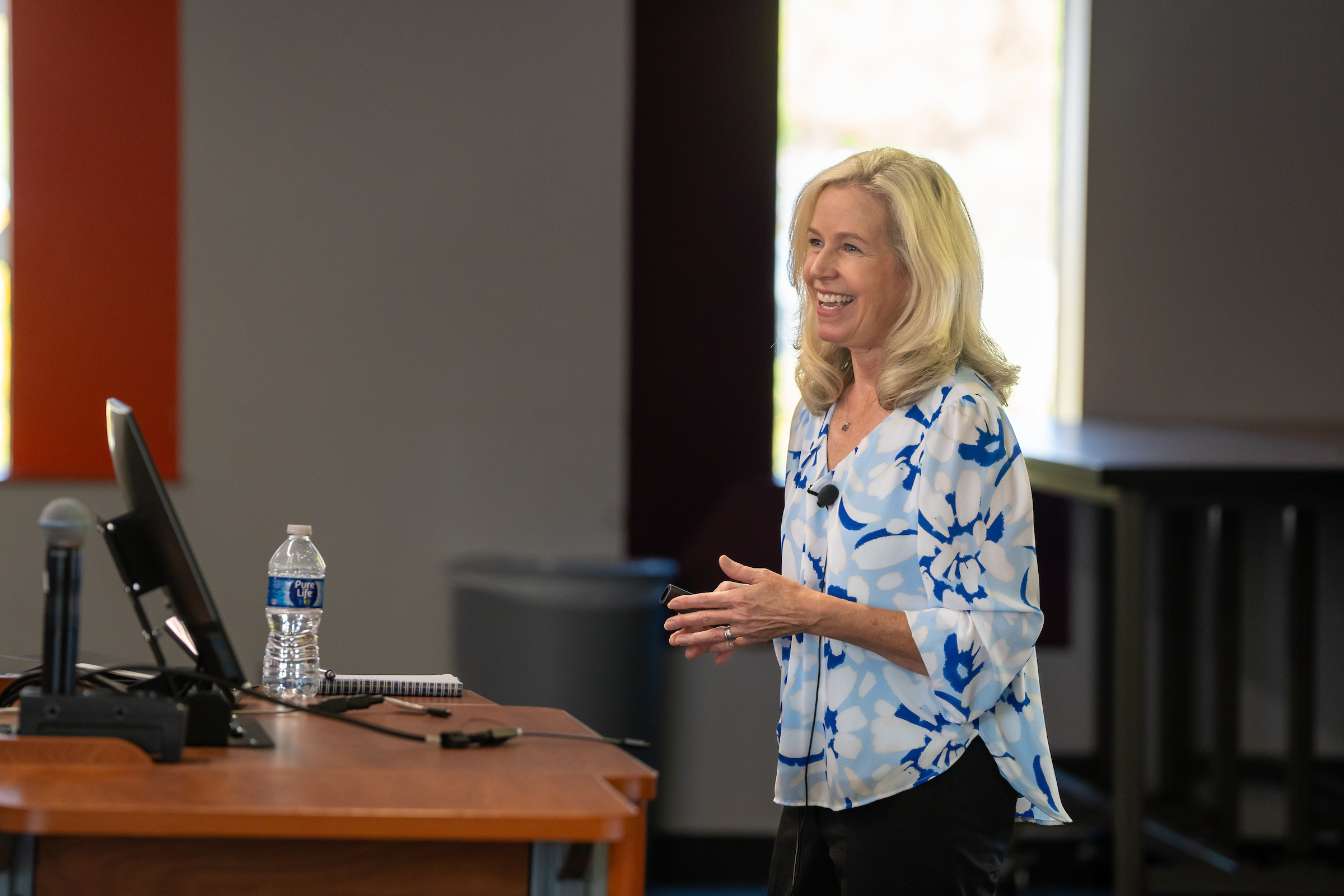
Inaugural Inclusive Excellence Lecture discusses new model for cultivating inclusion and belonging
Clinical Professor Marcie LePine shares 'flower' framework with ASU attendees.
As part of ongoing conversations to build a culture of inclusive excellence at ASU and the W. P. Carey School of Business, the business school's Council on Inclusive Excellence hosted an inaugural lecture on Sept. 27. The yearly event will be an opportunity to "foster a more inclusive and equitable environment for our faculty, staff, students, and community," said Jeffrey Wilson, associate dean of research and inclusive excellence.
Marcie LePine, clinical professor of management and entrepreneurship, was this year's speaker. LePine's research focuses on the negative and positive effects of stress, leadership, and the work-nonwork interface, and she has consulted with several organizations on a range of issues from staffing and training return on investment to leadership competency modeling.
Amalia Pallares, vice provost for inclusive excellence at ASU, offered some opening remarks at the event. Pallares presented lessons from civil rights activist Pauli Murray, who wrote about the intersection of gender, race, and sexuality, and influenced the legal opinions that would go on to win the famous Brown vs. Board of Education Supreme Court case. "Pauli Murray always felt she had to check part of who she was at the door," explained Pallares. "We should never have to do that, and we aim to make that goal a reality of being part of the ASU community."
Developing a new framework for inclusion
In her lecture, LePine focused on her ongoing work and research to build a new framework for inclusion and belonging. She posits that inclusion and belonging exist using a flower metaphor, overlapping and interlocking "petals," including psychological safety, self-efficacy, mindful learning, mental health and well-being, and accountability.
"Each of these different components plays a key role in building the inclusive cultures we hope to create," explained LePine. "Of course, each of these ideals takes ongoing practice and cultivation. Inclusion and belonging are not a destination one arrives at, but fluid states that people experience individually and collectively, and that ebb and flow."
LePine suggests individuals and organizations work on growing each facet of the framework while considering how they may work together. For example, psychological safety asks people to model openness and fallibility, while mindful learning encourages reflection and learning through experience. Together, the two framework components encourage practitioners to be curious about new ideas and to learn from past mistakes.
Some of LePine's current research focuses on mental health and well-being, and how stress might impact inclusion in the workplace. "Some stressors, what we call challenge stressors, like taking on a stretch assignment or new responsibilities, actually might help create a thriving workplace," said LePine. "On the other hand, hindrance stressors, like an inefficient process, and threat stressors, like incivility, get in the way of the inclusive and productive workplace we hope to create." Understanding how those different types of stress impact employees can help create well-being that leads to feelings of belonging.
Those who missed the lecture can watch the recording here.
Latest news
- Artificial intelligence in business master's degree helps Nathan Merriman combine business strategy with technology
Nathan Merriman (MS-AIB '25) had been working in business for a few years when he learned about…
- How the Executive MBA empowered Scott Gates to be a mission-driven leader
Scott Gates (BS Marketing '04, Executive MBA '15) had a very positive experience during his…
- Fall 2025 W. P. Carey Dean's Medalists honored at celebratory luncheon
Top grads from each program recognized for academic excellence and lasting impact on the ASU…